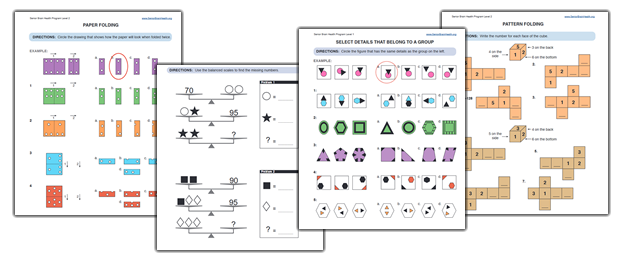In the journey of life, our minds are our most precious assets. As we age, maintaining cognitive health becomes paramount, yet it's a challenge many of us face. The good news is that there's a powerful tool within our reach: critical thinking. Beyond its academic connotations, critical thinking holds the key to combating cognitive decline and nurturing a vibrant mind well into our golden years.
Understanding Cognitive Decline
Before delving into the role of critical thinking, it's crucial to grasp the nature of cognitive decline. Aging often brings changes to our cognitive abilities, such as memory lapses, slower processing speed, and difficulty in problem-solving. While these changes are natural to some extent, they can progress into more severe conditions like dementia or Alzheimer's disease.
However, the trajectory of cognitive decline is not set in stone. Research suggests that lifestyle factors, including mental stimulation, play a significant role in shaping cognitive health as we age. This is where critical thinking steps in as a formidable ally.
The Power of Critical Thinking
Critical thinking goes beyond rote memorization or basic problem-solving; it's a mindset characterized by curiosity, skepticism, and analytical reasoning. Engaging in critical thinking exercises stimulates various cognitive functions, including memory, attention, and executive function.
Here's how practicing critical thinking can benefit cognitive health:
- Enhanced Brain Plasticity: Critical thinking tasks challenge the brain, promoting neuroplasticity—the brain's ability to reorganize and form new neural connections. By actively engaging our brains in complex mental activities, we foster resilience against cognitive decline.
- Improved Cognitive Functions: Just as physical exercise strengthens muscles, critical thinking exercises strengthen cognitive functions. From logical reasoning to creative problem-solving, these activities work out different areas of the brain, keeping them agile and adaptable.
- Stress Reduction: Engaging in critical thinking tasks can act as a form of mental relaxation. Focusing on challenging puzzles or thought experiments distracts the mind from stressors, promoting a sense of calm and well-being.
- Social Engagement: Many critical thinking activities, such as group discussions or collaborative problem-solving, foster social interaction. Maintaining social connections is vital for cognitive health, as it stimulates the brain and wards off feelings of loneliness or isolation.
- Empowerment and Confidence: As individuals tackle complex problems and overcome challenges through critical thinking, they develop a sense of empowerment and confidence in their cognitive abilities. This self-assurance can have ripple effects, positively impacting overall mental well-being.
Putting Critical Thinking into Practice
Incorporating critical thinking into daily life doesn't require specialized training or resources. Simple activities like solving puzzles, solving strategy activities, or engaging in thought-provoking discussions can all contribute to cognitive stimulation.
At SeniorBrainHealth.org, we're committed to fostering cognitive vitality and well-being in our golden years. We offer a curated selection of critical thinking activity books specifically designed to nurture cognitive function and combat the challenges of aging brains. These meticulously crafted resources feature engaging exercises and puzzles tailored to stimulate the mind and promote brain health. By exploring the offerings at SeniorBrainHealth.org, individuals can embark on a journey of cognitive empowerment, unlocking the potential for a sharper, more resilient mind in their later years.
It's never too early—or too late—to start honing your critical thinking skills. By making critical thinking a regular part of your routine, you're not only investing in your cognitive health but also unlocking the potential for a sharper, more resilient mind in the years to come.
In Conclusion
In a world where cognitive decline poses a significant challenge, critical thinking emerges as a beacon of hope. By embracing a mindset of inquiry, analysis, and reasoned judgment, we can fortify our minds against the ravages of time and nurture cognitive vitality well into old age. So, let's embark on this journey of cognitive empowerment, one critical thought at a time.




